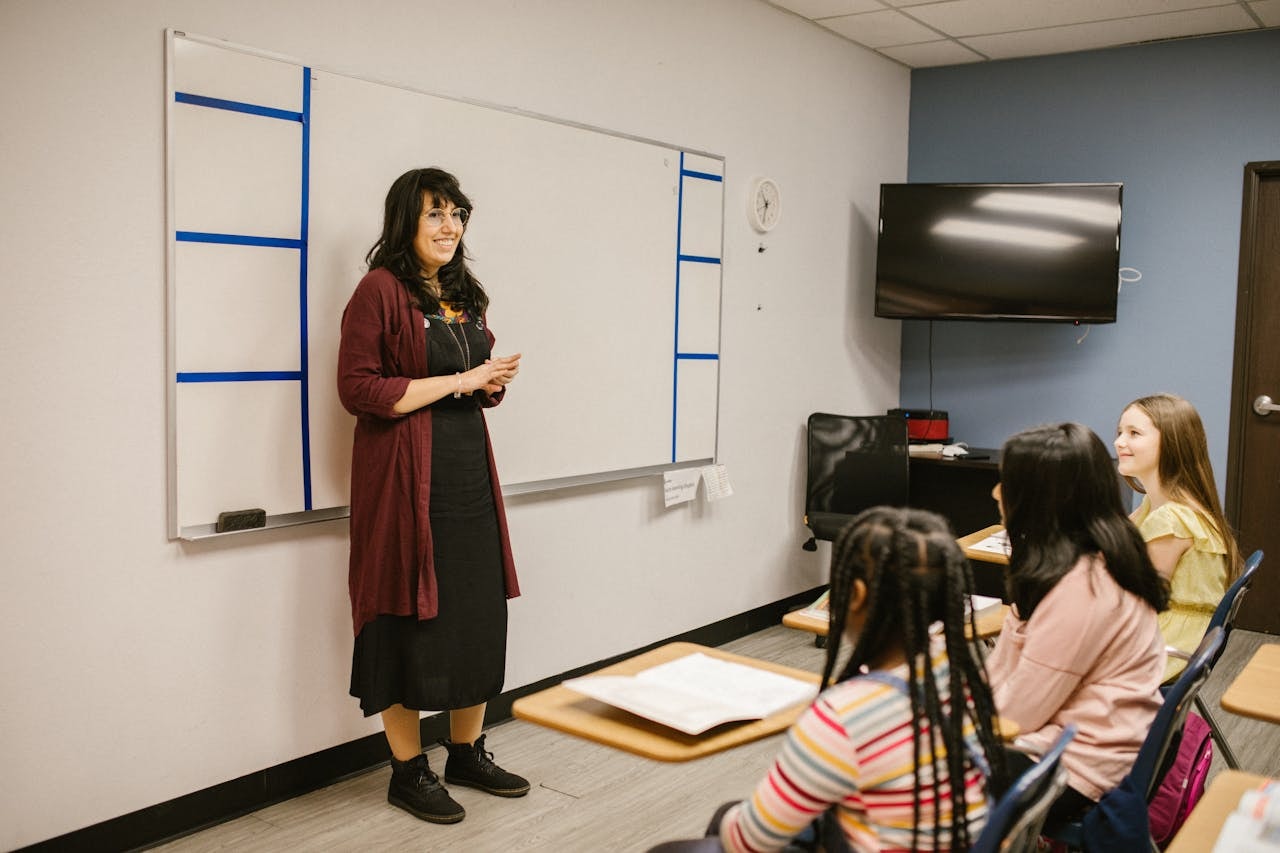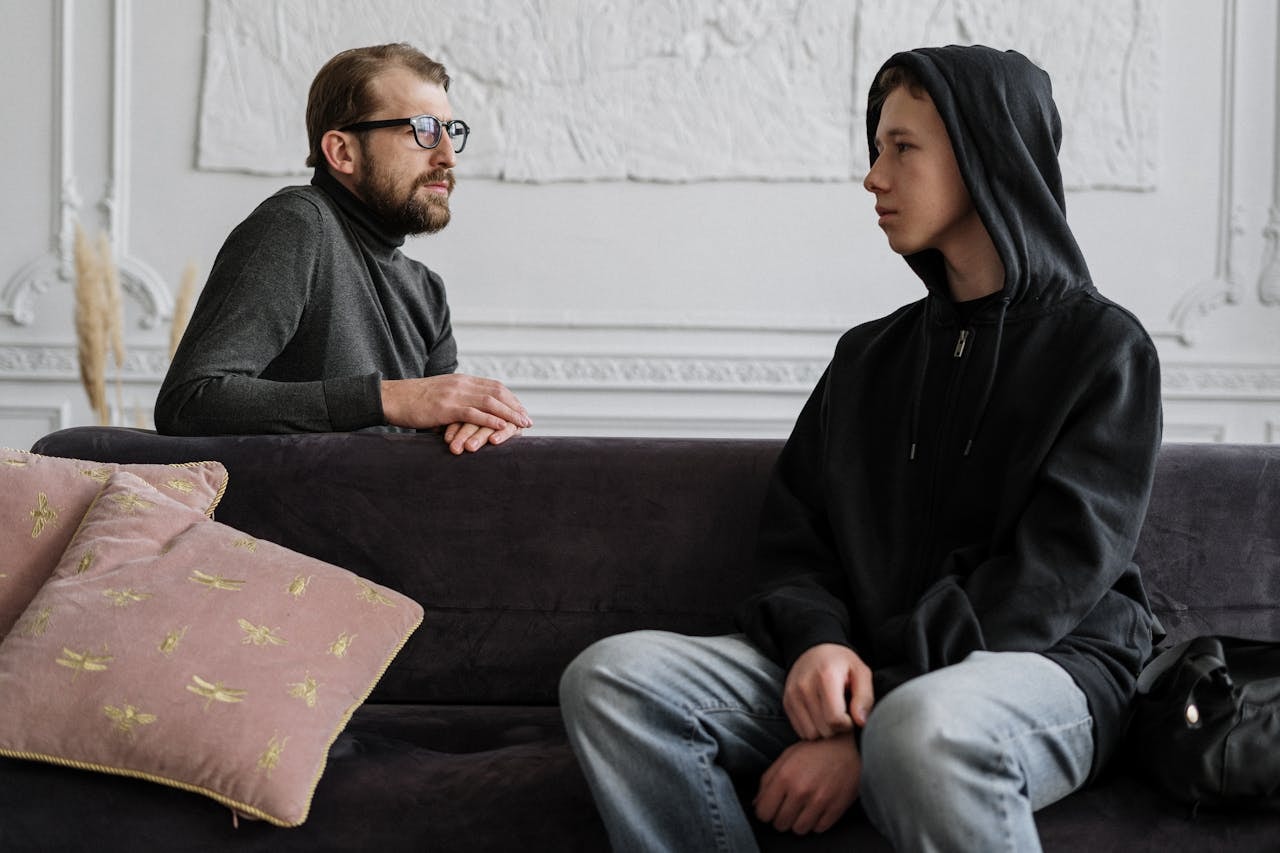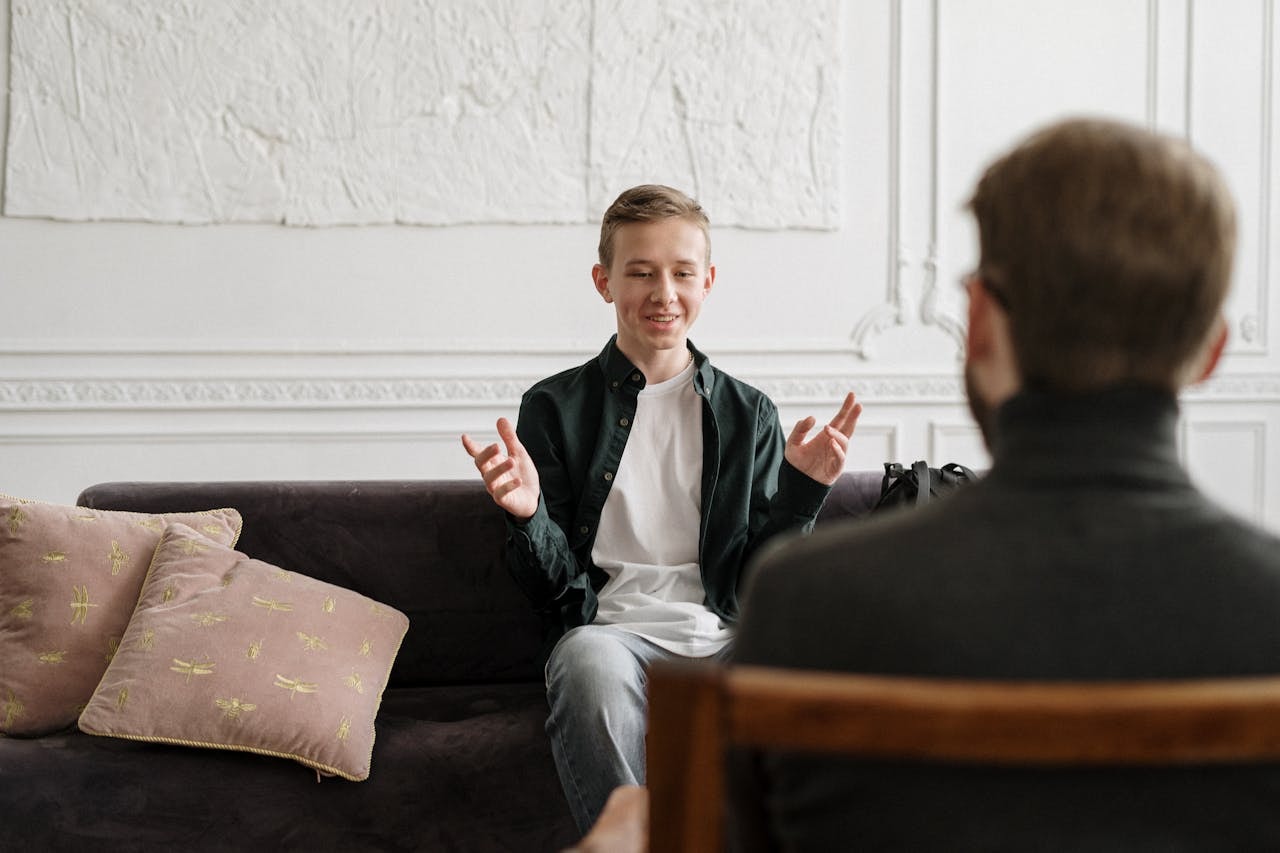
Are you in need of Children’s Counselling Services?
In today’s fast-paced and demanding world, children young people face more emotional and psychological challenges than ever before. Whether it’s anxiety, peer pressure, or grief, it’s clear that supporting children’s mental health must be a national priority. That’s why children’s counselling services, like those offered at Re.Connect Support Services, are stepping up to provide tailored, expert care that truly makes a difference.
Why Mental Health Matters—Even for Children

Mental health is just as vital for children and young people s it is for adults. It influences how kids think, feel, behave, form relationships, and handle challenges both big and small. Yet, it’s often misunderstood or overlooked. Many adults assume that because children are young, carefree, and adaptable, they’re somehow immune to mental illness. Unfortunately, that’s not true.
In fact, research shows that nearly half of all lifelong mental health issues begin before the age of 14. According to the Australian Institute of Health and Welfare, approximately one in seven children aged 4 to 17 years experience a mental disorder every year. That’s a significant portion of our young population struggling with emotions they may not have the words—or resources—to manage on their own.
The Impact of Unaddressed Mental Health Issues
Left untreated, mental health concerns in children can affect every part of their life:
- At home: Children may become withdrawn, aggressive, or uncommunicative with family members, making home life more stressful for everyone involved.
- At school: Struggles with attention, memory, social skills, or behaviour can lead to falling behind academically and increased risk of bullying or isolation.
- Physically: Mental illness can lead to changes in sleep, eating habits, and even physical health conditions such as stomach aches or headaches.
- Socially: Difficulty making or keeping friends, peer pressure, or low self-esteem can cause children to feel alone, misunderstood, or anxious.
When we ignore early signs, we risk allowing temporary emotional struggles to grow into chronic conditions like depression, anxiety disorders, or behavioural issues. That’s why early support matters—and it’s why free counselling services for children must be easily accessible to all.
Mental Health is Not Just About Diagnoses
It’s also important to understand that mental health doesn’t just refer to mental illness. Mental health encompasses a child’s overall emotional wellbeing—their ability to manage stress, express emotions, build positive relationships, and develop resilience. You don’t need a formal diagnosis to benefit from a counselling service.
Even kids who are generally happy can benefit from having a safe, supportive space to explore their thoughts, learn about their feelings, and develop emotional regulation skills. Counselling provides that space—judgment-free and tailored to their developmental needs, helping them learn how to cope .
Early Support Builds Lifelong Strength
The earlier we introduce kids to support services, the better their outcomes. Children are still forming the emotional patterns, beliefs, and self-perceptions that will shape their identity for years to come. Through counselling, they learn vital skills such as:
- Recognising and naming their emotions
- Managing anger, sadness, and frustration in healthy ways
- Understanding how thoughts influence feelings and behaviour (a key principle in cognitive behaviour therapy)
- Problem-solving and decision-making skills
- Building confidence and a healthy sense of self
By addressing challenges early, we not only reduce their current distress but also give them tools to face life’s inevitable ups and downs with greater confidence and control.
Understanding the Importance of Early Support

Children don’t always know how to express emotions like stress, sadness, or fear. These feelings can show up as behavioural problems, sleep disturbances, difficulty at school, or withdrawal from family members and friends.
Professional children’s counselling services can help kids and teenagers develop a healthy sense of self, build emotional resilience, and feel safe in expressing their concerns. These services often use child-centred therapies such as cognitive behaviour therapy (CBT), play-based interventions, and talk therapy to support emotional wellbeing.
Mental Health Information for Children: Helping Young Minds Understand What They Feel

One of the most important parts of early support is giving children access to accurate, age-appropriate mental health information. Understanding what they’re feeling—and that those feelings are valid—is often the first step toward emotional wellbeing.
At Re.Connect Support Services, we believe that empowering children with knowledge helps reduce fear, stigma, and confusion around mental illness. That’s why we tailor information to suit the child’s developmental stage. Whether it’s a simple explanation of what anxiety feels like or using storybooks to explain grief, children learn better when we speak their language.
We also provide resources for children to explore mental health topics on their own or with a parent or counsellor, including:
- Illustrated guides and worksheets for emotional regulation
- Journals and activity sheets to express feelings
- Books and videos explaining common concerns like separation anxiety, stress, and low self-esteem
- Safe online tools that support kids in recognising and naming their emotions
By helping children understand mental health early, we not only make it easier for them to seek support—we help them develop lifelong tools for managing emotional challenges with confidence.
Who Benefits from Children’s Counselling?

Support services, including free service options, are available for children aged 3 and up, including:
- Primary school age children coping with big changes
- Teenagers dealing with peer pressure or school-related stress
- Kids experiencing grief, trauma, or abuse
- Children living with a parent or carer who has a mental illness
- Young people affected by family breakdown, bullying, or health issues
It’s not just about “fixing problems” — counselling helps children build lifelong emotional tools and better relationships with family, carers, and peers.
What Happens During a Counselling Session?

Every counselling service operates slightly differently, but the core aim remains the same: to help children understand and regulate their emotions. Qualified counsellors work closely with the child—and often their family—to build trust and develop healthy coping strategies.
Common methods include:
- Art and play therapy
- Talk therapy and storytelling
- Mindfulness and breathing exercises
- Cognitive behaviour therapy (CBT)
These tools are effective in helping children gain a sense of control over their thoughts and concerns, especially in times of stress or crisis.
How Parents and Carers Can Support the Journey
Parents and carers are integral to every child’s healing process. Many support services offer family-focused programs that include parent-child sessions, parenting tips, and tools to help support young people at home.
It’s about creating a safe space, both in counselling and at home, where children feel seen, heard, and supported.
Where to Access Free and Anonymous Support
Access to mental health services shouldn’t be a privilege—it should be a right. Thankfully, there are many organisations across Australia offering free service including counselling, online counselling, and anonymous support for mental health for children and families.
Key national resources include:
- Kids Helpline (1800 55 1800) – A free, 24/7 service for children and teenagers offering phone, chat, and email support
- Lifeline (13 11 14) – Crisis support for mental health issues and suicide prevention
- Headspace – Online and face-to-face mental health services for young people aged 12–25
- Parentline – Counselling and guidance for parents and carers
These resources complement local counselling services, allowing children and their families to get help anytime, anywhere.
Re.Connect Support Services Across New South Wales
In New South Wales and beyond, Re.Connect is committed to offering high-quality children’s counselling services that are inclusive, professional, and accessible. With locations across the state and availability of telehealth programs, our community ensures that families from both urban and regional areas can access the support they need through comprehensive mental health care.
Our programs address:
- Emotional regulation
- Anxiety and depression
- Peer relationships and bullying
- Behavioural concerns
- Adjustment after trauma or loss
We work in partnership with schools, doctors, and community support groups to provide a holistic approach to each child’s needs.
Our Qualified Counsellors: Experts with a Heart
All of our professional counsellors are tertiary-qualified and trained in delivering evidence-based mental health services for children of all ages . They bring a mix of lived experience, clinical expertise, and genuine compassion to their practice.
Our team is not only trained to address specific mental health issues like depression or anxiety, but also knows how to make kids feel safe and comfortable—even when talking about tough topics.
A Whole-Family Approach to Healing
Mental health challenges rarely occur in isolation. They can affect parents, carers, and siblings. That’s why our services extend to the whole family, including sibling support, referrals to allied health professionals, and access to support groups for carers.
We believe every family deserves access to a service that empowers them to thrive—together.
Identifying When to Seek Help

Wondering if it’s time to seek help? Some signs that may suggest a child needs support include:
- Persistent sadness or anxiety
- Withdrawal from activities or family
- Difficulty sleeping or eating
- Aggressive or risky behaviours
- Excessive fears or phobias
- Talking about death or suicide
Even if symptoms aren’t severe, it’s okay to reach out. The earlier you access support, the better the outcomes.
Making Counselling Normal—Not Taboo
Let’s be real: some parents still fear the stigma associated with mental health. But times are changing, and so must we. Normalising children’s counselling as just another support service—like a tutor or GP—can make all the difference.
When we talk openly about feelings, emotions, and mental health, we give our children permission to do the same.
Online Counselling and Digital Programs
We live in a digital world, and that’s not always a bad thing. Many kids today feel more comfortable expressing themselves through text or video chat. That’s why Re.Connect offers secure online counselling services to meet children where they are—digitally.
From video sessions to anonymous support chats, we ensure that access is easy, discreet, and effective.
Our Mission: Support Young People to Thrive
Re.Connect isn’t just a counselling provider. We’re a community-driven organisation that puts emotional wellbeing at the heart of everything we do. We’re here to help kids cope with life’s challenges, gain resilience, and create a sense of safety and strength within themselves.
Every child has the right to grow up feeling confident, secure, and hopeful—and with the right support, they can.
Final Words: Mental Health Support Is a Lifelong Gift

Counselling is more than a service—it’s a lifeline. When we invest in children’s emotional wellbeing, we’re not just addressing immediate health concerns; we’re building the foundation for stronger families, safer schools, and healthier communities.
If you’re ready to take the next step, don’t wait for a crisis; consider reaching out to a helpline for guidance . Let’s prioritise our kids’ mental health together, starting today.
Need Help or More Info?
Visit: https://reconnectss.com.au
Email: enquiries@reconnectss.com.au
Let’s raise the flag for our future—one child, one conversation, one moment at a time.


